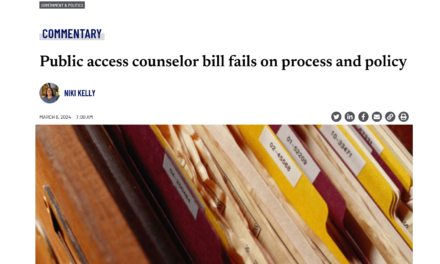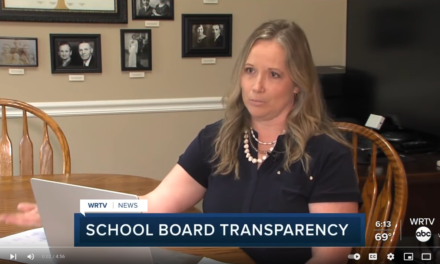What can a person do when a public agency is suspected of violating Indiana’s laws on public records?
First, it’s important to know what the law allows. Generally, Indiana’s Access to Public Records Act (APRA) provides that any person can inspect or copy public records during regular business hours of a public agency. If a person makes a request in person, the agency must at least acknowledge the request within 24 hours. If a request is made in writing, the agency has seven days to respond.
Some records of government agencies are exempt from public disclosure for certain statutory reasons, such as private medical information. But if an agency denies a request for access to a record, it must provide a specific statutory reason for doing so.
If you believe you have wrongfully been denied a record, you should first file a complaint with Indiana’s Public Access Counselor (PAC), an appointed official (currently Luke Britt) who can issue an advisory opinion about whether the record should be released or not. While the PAC’s opinions are non-binding, they sometimes can be helpful in negotiating with a public agency. Further, if you end up having to sue over a violation of APRA, seeking a PAC opinion first allows you to seek payment of your legal expenses by the agency if you win.
Under APRA, an official who intentionally refuses to comply with the statutory requirement to release records can be fined by a judge, but it is up to a citizen requester to file a legal case first.
For more details about APRA, as well as Indiana’s Open Door Law (which governs public meetings), consult the Handbook on Indiana’s Public Access Laws, available as a free download from ICOG and the Public Access Counselor.
This story is part of a project exploring digital access to local government information in Indiana. Click here to return to the main project page.




Recent Comments